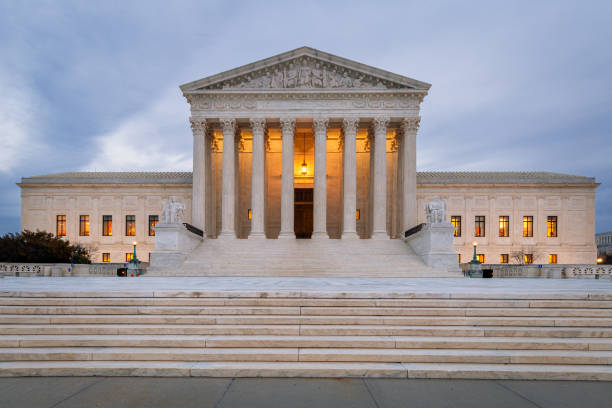On Thursday, the U.S. Supreme Court made a pivotal decision, rejecting President-elect Donald Trump’s request to halt his sentencing in the New York criminal hush money case.
In a narrow 5-4 ruling, the Court determined that the proceedings should move forward, clearing the way for Trump to be sentenced on Friday morning.
The majority opinion was supported by Chief Justice John Roberts and Justice Amy Coney Barrett, both conservative justices, who sided with the liberal justices Sonia Sotomayor, Elena Kagan, and Ketanji Brown Jackson.
The remaining conservative justices—Samuel Alito, Clarence Thomas, Neil Gorsuch, and Brett Kavanaugh—voted in favor of Trump’s request for a delay, but their stance did not sway the outcome.
The Court’s decision was grounded in the reasoning that Trump’s sentencing would impose a relatively “insubstantial” burden on his presidential duties, given that the sentence involves no actual punishment.
The justices were also unsympathetic to Trump’s claims about the use of evidence in his trial, noting that any alleged violations could be addressed during the appeals process.

Despite Trump’s appeal, the court ruled that the sentence would impose minimal burden on the presidency.
Trump, who was convicted last May on 34 counts of falsifying business records related to a $130,000 hush money payment to porn star Stormy Daniels ahead of the 2016 presidential election, expressed his disagreement with the Court’s ruling.
He framed the decision as an invitation for him to appeal, a move he planned to pursue, calling the conviction a “disgrace.”
The legal team representing Trump had argued that further proceedings should be delayed until after the appeal process.
They claimed that Trump, as president-elect, should be immune from criminal prosecution and that the Manhattan District Attorney’s Office had violated his immunity by using evidence of his official acts as president in the trial. Despite their arguments, the Supreme Court and New York’s highest appeals court refused to grant a stay, paving the way for the sentencing.
While Trump faces no immediate jail time, probation, or fines, the sentencing on Friday will be considered a “discharge” without any additional conditions, according to Judge Juan Merchan.
This decision follows multiple delays in the case, some of which were made prior to and after the November 5 election.
Interestingly, reports emerged that Trump had spoken to Justice Samuel Alito just one day before filing his emergency request with the Supreme Court. Alito confirmed the conversation but denied that the hush money case was discussed, further distancing the Court’s deliberations from any potential conflicts of interest.
Trump’s legal team remains determined to pursue an appeal, believing that the case will eventually be overturned, thus setting the stage for continued legal battles as he prepares to assume office.
The case underscores the continuing intersection of Trump’s legal challenges and his political career, with significant implications for both.
